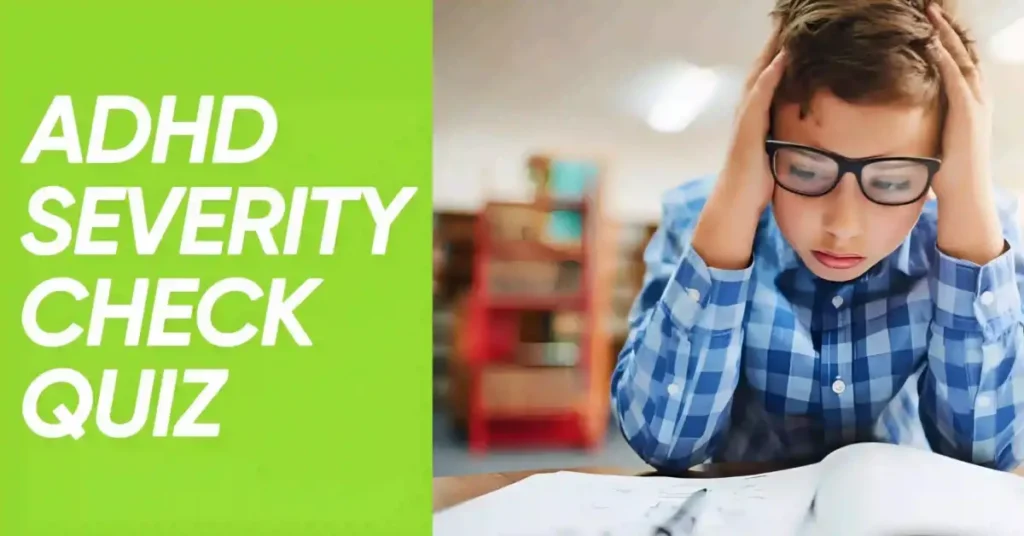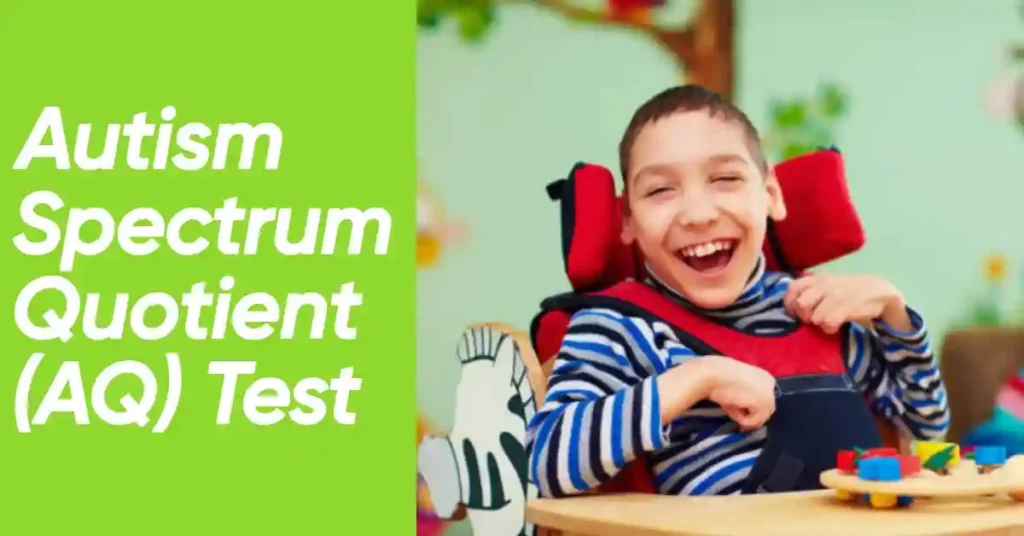Anhedonia is a complex emotional condition that can profoundly affect one’s emotional well-being. Characterized by the persistent inability to experience pleasure or interest in previously enjoyable activities, anhedonia is a sign of potential emotional health issues.
To gain a deeper understanding of anhedonia, it’s essential to refer to reputable sources like the American Psychological Association (APA) for comprehensive information on emotional health.
This article is all about our Anhedonia Quiz — a valuable self-assessment tool designed to help individuals evaluate their emotional state and their potential experience of anhedonia. In this article, we will explore the quiz’s purpose, its target audience, its accuracy, and why taking it is worthwhile.
Anhedonia Quiz: Test Your Emotional Health
Our Anhedonia Test comprises of a series of 25 carefully crafted questions aimed at assessing one’s ability to experience pleasure, interest in activities, and emotional well-being. By completing this quiz, individuals can gain insights into their emotional health and potential symptoms of anhedonia.
Who Is This Quiz For?
This quiz is designed for individuals who believe they might be encountering signs of anhedonia or those who want to gauge their emotional health. It functions as a helpful self-evaluation resource for people who are looking to better understand their emotional condition and are contemplating seeking assistance or guidance from a healthcare professional.
Is This Anhedonia Quiz Accurate?
It’s essential to emphasize that our Anhedonia Quiz is meant for self-assessment and should not be considered a diagnostic tool. Although it can offer valuable insights into emotional well-being and possible signs of anhedonia, it should not be a substitute for a professional evaluation. This quiz encourages individuals to engage in self-reflection and become more aware of their emotional state, prompting them to seek additional evaluation from a healthcare expert if required.
Why Is It Worth Taking?
Participating in Illnesstests Anhedonia Quiz represents a proactive measure for individuals who are worried about their emotional welfare and the possibility of anhedonia. It can provide them with valuable insights into their emotional condition, foster self-reflection, and promote the idea of seeking professional assistance or support when necessary.
Below, You’ll Find a 25-Question Based Quiz Designed to Assist You in Assessing Whether You Might be Experiencing Symptoms of Anhedonia. To Obtain the Most Accurate Results, Please Answer Each Question Honestly.
What about Results?
After finishing the quiz, participants will receive feedback regarding their emotional well-being and any potential signs of anhedonia. These results are meant solely for self-reflection and increasing awareness. Individuals who have concerns about their emotional health or receive results suggesting possible anhedonia should consider consulting a healthcare professional for a thorough evaluation and personalized advice.
How Do I Self-Check for Anhedonia?
When taking the Anhedonia Quiz, individuals can consider the following strategies for self-check:
- Interest in Activities: Reflect on your level of interest or pleasure in activities you once enjoyed.
- Emotional Range: Evaluate the range and intensity of your emotions, including joy, sadness, and indifference.
- Social Engagement: Consider your engagement in social interactions and whether you find them fulfilling.
- Physical Symptoms: Be aware of any physical symptoms like fatigue, changes in appetite, or sleep disturbances.
Causes of Anhedonia
- Mental Health Disorders: Anhedonia is often associated with conditions such as major depressive disorder, bipolar disorder, and schizophrenia. The altered brain chemistry and neural pathways in these disorders can lead to anhedonic symptoms.
- Substance Abuse: The misuse of substances, including drugs and alcohol, can disrupt the brain’s reward system. This can result in anhedonia, as the brain becomes less responsive to natural rewards.
- Chronic Stress: Prolonged exposure to stress can lead to changes in brain function, making it difficult for individuals to experience pleasure. High-stress levels can contribute to the development of anhedonia.
- Neurological Conditions: Certain neurological disorders, such as Parkinson’s disease and multiple sclerosis, can affect the brain’s ability to process pleasure and reward, leading to anhedonia.
- Medications: Some medications, particularly certain antipsychotic medications and those used to treat Parkinson’s disease, may have anhedonia as a side effect.
- Trauma: Individuals who have experienced trauma, particularly during childhood, may develop anhedonic symptoms as a coping mechanism to protect themselves from emotional pain.
Symptoms of Anhedonia
- Loss of Interest: Individuals with anhedonia often lose interest in activities and hobbies they once enjoyed. They may find it difficult to engage in or derive pleasure from previously fulfilling pursuits.
- Emotional Numbness: Anhedonia can lead to a pervasive feeling of emotional numbness. Individuals may struggle to experience positive emotions such as joy, excitement, or happiness.
- Social Withdrawal: A lack of interest in social interactions and relationships is a common symptom. Individuals with anhedonia may isolate themselves from friends and family.
- Changes in Appetite and Sleep: Anhedonia can disrupt eating and sleeping patterns. Some individuals may experience changes in appetite, leading to weight loss or gain, while others may struggle with insomnia or oversleeping.
- Difficulty Concentrating: Anhedonia can impair cognitive function, making it challenging to concentrate, make decisions, or focus on tasks.
Treatment for Anhedonia
- Psychotherapy: Psychotherapy, including cognitive-behavioral therapy (CBT) and dialectical-behavior therapy (DBT), can help individuals identify and address the underlying causes of anhedonia. Therapists work with patients to develop coping strategies and set achievable goals.
- Medications: In cases where anhedonia is a symptom of a larger mental health condition, such as depression or schizophrenia, medications may be prescribed. Antidepressants or mood stabilizers may help alleviate anhedonic symptoms.
- Lifestyle Changes: Adopting a healthier lifestyle can positively impact anhedonia. Regular exercise, a balanced diet, adequate sleep, and stress management techniques can contribute to improved emotional well-being.
- Social Support: Building a strong support network of friends and family can provide emotional support and motivation. Engaging in social activities, even when it feels challenging, can be beneficial.
- Mindfulness and Meditation: Mindfulness practices can help individuals reconnect with the present moment and increase awareness of their emotional experiences. Meditation techniques can reduce stress and improve emotional regulation.
- Dual Diagnosis Treatment: For individuals with co-occurring substance abuse and anhedonia, dual diagnosis treatment is essential. It addresses both substance use disorders and the associated emotional symptoms.
- Seek Professional Help: It’s crucial for individuals experiencing anhedonia to seek help from mental health professionals. A qualified therapist or psychiatrist can provide a comprehensive assessment and tailor treatment to individual needs.
Treatment for anhedonia may vary depending on the underlying cause and the individual’s specific symptoms. A personalized approach, often involving a combination of therapies and lifestyle changes, is typically the most effective way to manage and alleviate anhedonia.
Self-Help Tips for Managing Anhedonia
- Stay Physically Active: Regular exercise can help improve mood and increase the release of “feel-good” chemicals in the brain.
- Maintain a Healthy Diet: Eating well-balanced meals with essential nutrients can positively impact emotional well-being.
- Set Small Goals: Establish achievable daily or weekly goals to regain a sense of accomplishment.
- Practice Mindfulness and Meditation: Mindfulness exercises can help reconnect with the present moment and reduce emotional distress.
- Engage in Social Activities: While it may be challenging, spending time with friends and loved ones can provide emotional support.
- Seek Professional Help: If anhedonia persists and affects daily life, consult with a mental health professional for guidance and potential treatment options.
Conclusion
The Anhedonia Quiz offers an initial step for individuals concerned about their emotional well-being and potential anhedonia. By gaining insights into their emotional state, individuals can embark on a journey of self-awareness and reflection. Remember that the quiz is not a diagnostic tool but rather a means to stimulate self-reflection and encourage seeking professional help or support if necessary.
If you have any worries about your emotional well-being or suspect the presence of anhedonia, it is advisable to seek the guidance of a healthcare professional for a thorough evaluation and recommendations regarding suitable treatment and support.
Article Tags : Anhedonia Quiz | Anhedonia Test | Anhedonia self-assessment | Emotional well-being quiz | Self-quiz for anhedonia | Emotional wellness self-quiz | Anhedonia symptoms test | Anhedonia Causes | Anhedonia Symptoms | Anhedonia Treatment | Anhedonia Self-Help Tips
Frequently Asked Questions? (FAQ’s)
1. What is the aim of this Anhedonia Quiz?
Our Anhedonia Quiz aims to help individuals assess whether they might be experiencing anhedonia, a condition characterized by a reduced ability to experience pleasure or joy.
2. Can this Anhedonia Quiz diagnose Anhedonia?
No, this quiz serves as a self-assessment tool and should not replace a professional diagnosis. It provides insights into potential anhedonia symptoms.
3. Who should consider taking this Anhedonia Quiz?
Anyone who suspects they may be experiencing a reduced ability to enjoy things or emotions can benefit from taking the quiz to gain insights into their emotional well-being.
4. How long does it take to complete the Quiz?
Typically, it takes approximately 5-10 minutes to finish the quiz, although the actual completion time may differ based on individual responses.
5. Is this Anhedonia Quiz free to take?
Yes, this quiz is offered as a free resource to help individuals assess their emotional well-being and potential anhedonia symptoms.
6. What if this Quiz suggests I may be experiencing anhedonia?
If the results indicate potential anhedonia symptoms, it’s advisable to seek guidance from a healthcare provider or mental health professional for a comprehensive evaluation.
7. Can I share my results with a medical expert?
Certainly, you have the option to share your quiz results with a healthcare provider to aid in discussions regarding your emotional well-being and potential follow-up actions.
8. Are the Anhedonia Quiz results kept confidential?
Indeed, quiz results are kept confidential and will not be shared with third parties unless you decide to share them yourself. For more information regarding how we handle your data, please read our Privacy Policy.
9. Is this Anhedonia Quiz suitable for all age groups?
This quiz is designed for adults and older teenagers. For younger individuals, involving a parent or guardian in the process is advisable.
10. What resources are available if my results suggest I may have anhedonia?
Please read self-help tips above to manage Anhedonia effectively.
This self-assessment quiz-based article underwent its most recent medical accuracy review on September 25, 2023. Our dedication to offering trustworthy and up-to-date information about this specific mental health condition remains steadfast.

